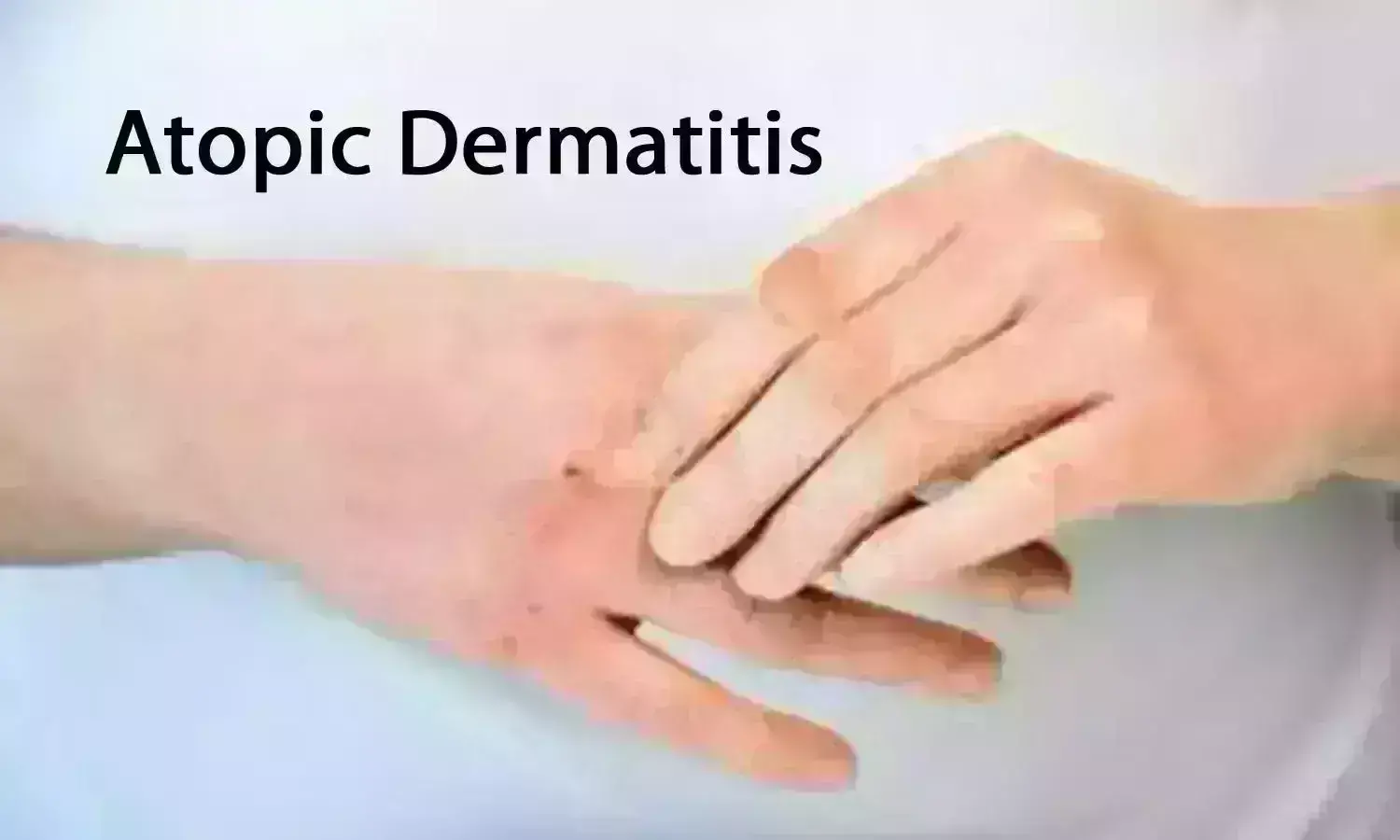- Home
- Medical news & Guidelines
- Anesthesiology
- Cardiology and CTVS
- Critical Care
- Dentistry
- Dermatology
- Diabetes and Endocrinology
- ENT
- Gastroenterology
- Medicine
- Nephrology
- Neurology
- Obstretics-Gynaecology
- Oncology
- Ophthalmology
- Orthopaedics
- Pediatrics-Neonatology
- Psychiatry
- Pulmonology
- Radiology
- Surgery
- Urology
- Laboratory Medicine
- Diet
- Nursing
- Paramedical
- Physiotherapy
- Health news
- Fact Check
- Bone Health Fact Check
- Brain Health Fact Check
- Cancer Related Fact Check
- Child Care Fact Check
- Dental and oral health fact check
- Diabetes and metabolic health fact check
- Diet and Nutrition Fact Check
- Eye and ENT Care Fact Check
- Fitness fact check
- Gut health fact check
- Heart health fact check
- Kidney health fact check
- Medical education fact check
- Men's health fact check
- Respiratory fact check
- Skin and hair care fact check
- Vaccine and Immunization fact check
- Women's health fact check
- AYUSH
- State News
- Andaman and Nicobar Islands
- Andhra Pradesh
- Arunachal Pradesh
- Assam
- Bihar
- Chandigarh
- Chattisgarh
- Dadra and Nagar Haveli
- Daman and Diu
- Delhi
- Goa
- Gujarat
- Haryana
- Himachal Pradesh
- Jammu & Kashmir
- Jharkhand
- Karnataka
- Kerala
- Ladakh
- Lakshadweep
- Madhya Pradesh
- Maharashtra
- Manipur
- Meghalaya
- Mizoram
- Nagaland
- Odisha
- Puducherry
- Punjab
- Rajasthan
- Sikkim
- Tamil Nadu
- Telangana
- Tripura
- Uttar Pradesh
- Uttrakhand
- West Bengal
- Medical Education
- Industry
Difamilast ointment well tolerated in paediatric patients with atopic dermatitis, Study finds

In atopic dermatitis (AD), phosphodiesterase 4 (PDE4) inhibition reduces proinflammatory mediators and cytokines. Difamilast is a new selective PDE4 inhibitor. One recent research published in the British Journal of Dermatology has found out that difamilast, in 0·3% and 1% ointments are superior to vehicle and well tolerated in paediatric patients
H. Saeki and colleagues from the Department of Dermatology, Nippon Medical School, Tokyo, Japan conducted the present study to demonstrate the superiority of topical difamilast to vehicle in Japanese paediatric patients with atopic dermatitis.
The authors carried out a phase 3 randomised, double-blind, vehicle-controlled trial, which included patients aged 2–14 years with an Investigator Global Assessment (IGA) score of 2 or 3. These patients received difamilast 0·3% (n = 83), difamilast 1% (n = 85) or vehicle (n = 83) ointment twice daily for 4 weeks.
The study revealed that the primary endpoint was established as the success rate in IGA score at week 4 (percentage of patients with IGA score of 0 or 1 with improvement by at least 2 grades). The success rates in IGA score at week 4 were 44·6%, 47·1%, and 18·1% in the difamilast 0·3%, difamilast 1%, and vehicle groups, respectively.
Both, difamilast groups demonstrated significantly higher success rates in IGA score versus vehicle at week 4 (difamilast 0·3%, P = 0·0005; difamilast 1%, P < 0·0001). Regarding secondary endpoints, success rates in Eczema Area and Severity Index (EASI) 50, EASI 75 and EASI 90 at week 4 were significantly higher in difamilast 0·3% and 1% than those in vehicle.
Eczema Area and Severity Index score in difamilast 0·3% and 1% was significantly reduced compared with that of vehicle at week 1, and the significant difference between both difamilast and vehicle groups was maintained from week 1 through week 4. Most treatment-emergent adverse events were mild or moderate, and no serious events or deaths were reported.
Hence, it was concluded that difamilast 0·3% and 1% ointments are superior to vehicle and well tolerated in Japanese paediatric patients with atopic dermatitis.
Dr. Nandita Mohan is a practicing pediatric dentist with more than 5 years of clinical work experience. Along with this, she is equally interested in keeping herself up to date about the latest developments in the field of medicine and dentistry which is the driving force for her to be in association with Medical Dialogues. She also has her name attached with many publications; both national and international. She has pursued her BDS from Rajiv Gandhi University of Health Sciences, Bangalore and later went to enter her dream specialty (MDS) in the Department of Pedodontics and Preventive Dentistry from Pt. B.D. Sharma University of Health Sciences. Through all the years of experience, her core interest in learning something new has never stopped. She can be contacted at editorial@medicaldialogues.in. Contact no. 011-43720751
Dr Kamal Kant Kohli-MBBS, DTCD- a chest specialist with more than 30 years of practice and a flair for writing clinical articles, Dr Kamal Kant Kohli joined Medical Dialogues as a Chief Editor of Medical News. Besides writing articles, as an editor, he proofreads and verifies all the medical content published on Medical Dialogues including those coming from journals, studies,medical conferences,guidelines etc. Email: drkohli@medicaldialogues.in. Contact no. 011-43720751


